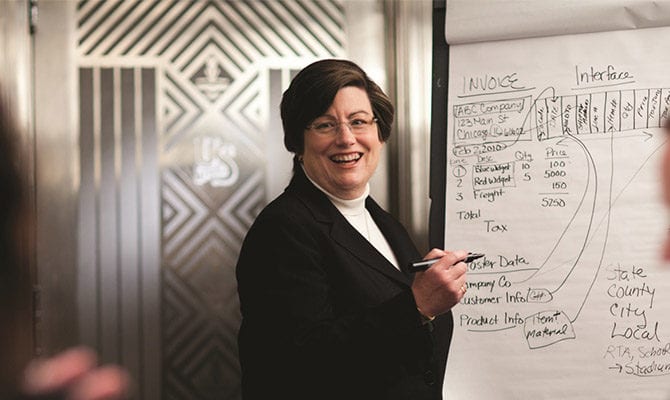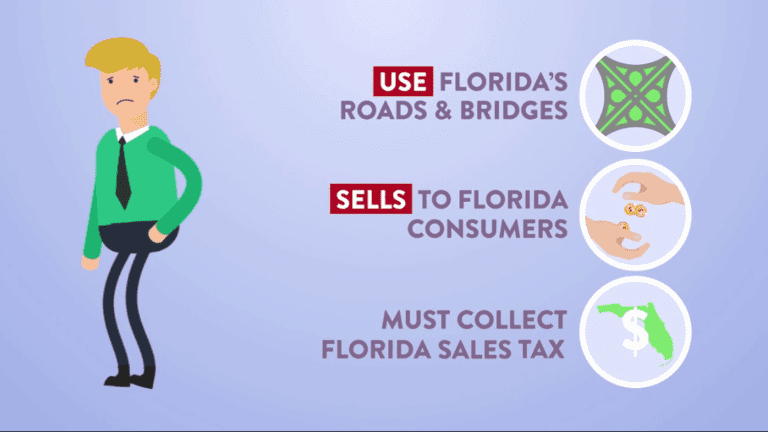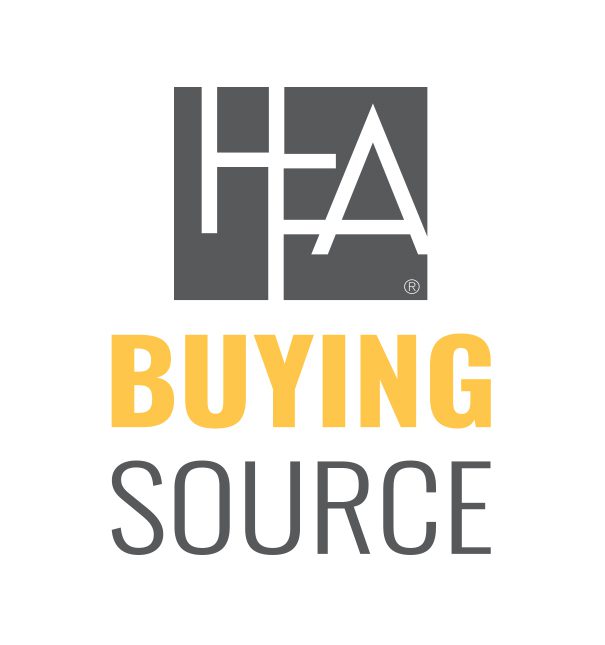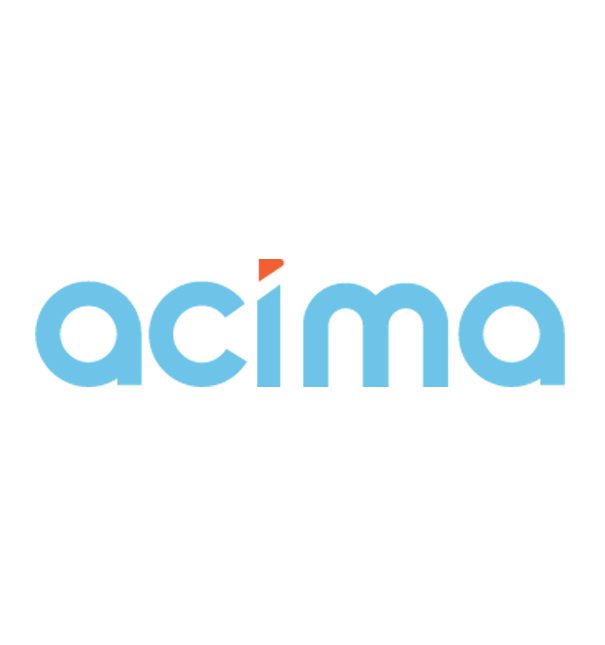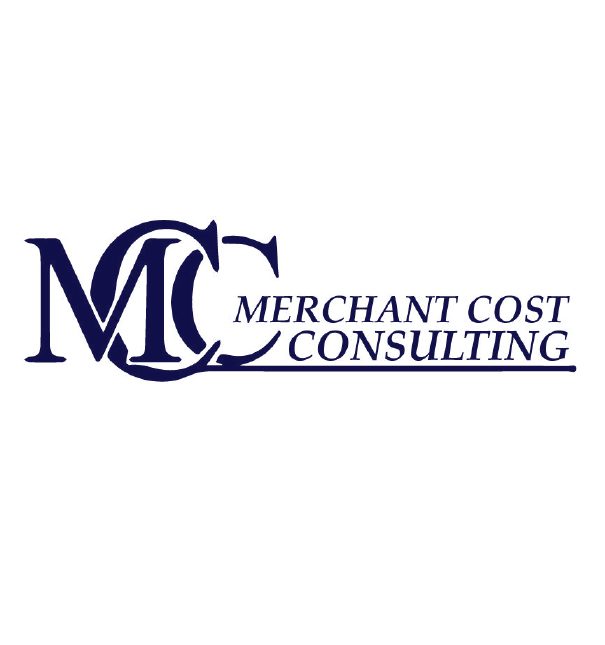If you ask John Gebhardt whether he’s figured out all the sales-and-use-tax protocols for jurisdictions where customers of Sheffield Furniture & Interiors live, he’ll answer quickly.
“No. The rules are changing, and it’s confusing.”
Gebhardt handles accounting and human resources for Severegn Furniture Management, which owns Sheffield. The retailer, a member of the Home Furnishings Association, operates showrooms in Malvern, Pa., Dulles, Va., and Rockville, Md., as well as Phoenixville Furniture Outlet in Phoenixville, Pa.
The most vexing problem is “trying to determine the taxability of services, what is taxable and what is not,” Gebhardt said.
He’s aiming at a moving target, as more states are imposing taxes on services in addition to goods. Sheffield offers design services, as well as installation of window treatments and rugs and application of Guardsman protection and repairs. It’s often unclear exactly what services, if any, are covered by a state’s tax code. And each state seems to differ from the next.
Diane Yetter understands.
“That’s why I’m in business,” she said. “That’s exactly why I’m in business.”
Information on state websites may need ‘interpretation’
Yetter runs the Sales Tax Institute, which she founded in 1996 in Chicago. Its website offers free resources about sales-tax laws in all 50 states. The institute provides on-site professional education. Yetter and staff members are available for paid consultations, webinars, speaking engagements, and other services. She holds accounting and business administration degrees from the University of Kansas and a master’s in taxation from DePaul University. She previously worked for the Kansas Department of Revenue and in the private sector. She knows the complexity of sales-tax issues.
When Gebhardt is stuck, he looks for help at the source.
“You have to go to state websites and see what you can find,” he said. But that can require some “interpretation.”
But Yetter advises caution. Remarkably, it can’t be assumed that even people who work in state revenue offices give reliable information. “You can talk to three people and get three different answers,” Yetter said. “That happens.”
The difficulty almost always results from delivering furniture, or services, across state lines. There’s only one certainty, at least in the vast majority of states that charge a sales tax. If the customer makes a purchase in a store and takes possession of the item or items there, the sales tax that applies where the store is located must be collected.
If the customer lives in another state and wants the goods delivered to his or her residence or business in that state, the “norm,” according to Yetter, is that the tax is owed in that location. But, “whether or not you’re required to collect it is a completely different question,” she said of the seller.
Sometimes, the purchaser is responsible for the tax
Some states place the responsibility for paying the tax on the purchaser. Whether the customer pays or doesn’t isn’t the seller’s concern. But the difference may be a matter of how the goods are delivered. If the retailer’s employees use the retailer’s truck to deliver a sofa to a customer in another state, the retailer likely is required to collect the sales tax. In some states, such as New Jersey, the tax would be based on the cost of the sofa and delivery. If the retailer sends the sofa via a common carrier, the tax obligation usually would fall to the purchaser. Technically, the tax would be a use tax, since the sofa was purchased for use in the customer’s state of residence. The use-tax rate is usually the same as the sales-tax rate.
Another factor that helps determine sales-tax obligations is economic nexus. A retailer establishes nexus with a physical location of a store, warehouse, office or any other facility. With nexus comes the responsibility to collect sales tax from a purchaser. Often, even the temporary presence of a truck and crew making deliveries can establish nexus. Many states also have enacted laws that create economic nexus even if the seller doesn’t have a physical presence. In that case, the seller would be required to collect the tax once its annual sales into that state reach a threshold, which generally ranges from $100,000 to $500,000. So, retailers have to record total sales into each state with those requirements.
For retailers who deliver furniture in relatively small amounts to customers in only a few states, keeping track of the various tax requirements can be manageable, Yetter said. It’s when the numbers climb that the complexity multiplies.
There are companies that offer automated sales-tax reporting and filing services. Yetter mentioned Avalara and TaxJar, but there are others. Some retailers might find it worthwhile to pay to have this problem solved for them.
Royal Furniture hires an automated sales-tax solution
HFA member Royal Furniture in Memphis, Tenn., recently hired Avalara to handle its sales-tax programs, according to Michael Faber, Royal’s president.
Memphis sits just across the Mississippi River from Arkansas and only a few miles north of the Mississippi state line. Royal Furniture operates stores in Mississippi and Alabama in addition to Tennessee. Tax obligations are made even more complicated, if that’s possible, by separate taxes charged by many counties and municipalities.
One way that Royal has handled these complexities has been by crafting agreements with customers stipulating that they are taking ownership of their purchases in the store, even if those purchases are delivered later. Faber doesn’t recommend such agreements unless they’re approved by an attorney. Now, he’s happy to outsource the task of sales-tax compliance to Avalara.
“We’re not going to have to keep up with it,” he said. “They’re going to have to keep up with it.”
The best solution would be a uniform national approach to sales-and-use taxation.
“I would not hold my breath waiting for any sort of federal action,” Yetter said.
While following the complexities of sales-tax compliance in multiple jurisdictions isn’t easy, retailers can’t afford to get it wrong. There can be costly consequences, including penalties and requirements to pay years of back taxes owed. HFA members can call their association at 800-422-3778 for help or referrals to resources.

Political update
President Trump used his annual State of the Union speech last week to preview his argument for re-election. He listed several accomplishments that he promised during the 2016 campaign, featuring a strong economy, lower taxes and decreased regulations. He gave the speech in unfamiliar times. Through the House impeachment proceedings and the Senate trial, it was always a long shot that the president would be convicted and removed from office. But his acquittal leaves many questions about how Washington will operate in the fallout.
The president and House Speaker Pelosi have a terribly strained relationship, which was on full display during the State of the Union. Whether the two sides can find common areas to work together in the next few months is a hopelessly open question.
Meanwhile, the 2020 Democratic presidential primary contest was marred by errors and delays from the Iowa caucuses. As the New Hampshire primary approached, an Iowa winner was undetermined for days. Yet, former Mayor Pete Buttigieg and Sen. Bernie Sanders claimed the momentum, with former Vice President Joe Biden needing a boost after a lackluster performance in Iowa.
Furniture stability
The issues related to furniture tip-overs have been highlighted in recent weeks with product warnings coming directly from the Consumer Product Safety Commission (CPSC) to inform consumers about unstable clothing storage units on the market.
Acting CPSC Chairman Bob Adler used an uncommon lever, a unilateral press release, to warn consumers about a specific product on the market that failed stability testing. This is happening in the context of the ongoing CPSC rulemaking on furniture stability. We expect more information on that effort in the next couple of months.
Trade
President Trump and Chinese Vice Premier Liu signed a “Phase One” trade deal, which indefinitely delayed scheduled tariff increases from goods imported to the U.S. from China (List 4b) and rolled back existing tariffs of 15 percent to 7.5 percent (List 4a). The tariff rollback will be effective in mid-February.
In exchange, China agreed to:
- Relax limits it places on foreign ownership in its financial services sector.
- Increase certain intellectual property protections.
- Purchase $200 billion more in U.S. exports over two years.
- Refrain from devaluing its currency.
Existing 25 percent tariffs on $250 billion worth of imported goods from China (Lists 1-3) remain in effect. List 3 includes most of the imported home furnishings components and finished goods.
The fate of those tariffs will rest on China’s compliance with the Phase One agreement and pledged Phase Two discussions. If the administration follows a similar pattern as it did for Phase One, this could include incremental tariff rollbacks as milestones are met.
Politically, President Trump is trying to balance a strong domestic economy while also achieving tangible results from this prolonged trade war. Given the goodwill established by the Phase One deal and the current strength of the economy, a Phase Two deal seems far off when coupled with the ongoing presidential election.
In the meantime, the administration has granted several tariff exclusions, including for some home furnishings categories. These exclusions are retroactive to Sept. 24, 2018, and allow importers to apply for refunds of tariffs already paid.
Upholstered furniture flammability
The House passed the Safer Occupancy Furniture Flammability Act (SOFFA) in mid-December. Importantly, it adopted helpful amendments added by the Senate Commerce Committee. That leaves Senate floor consideration as the final hurdle for SOFFA becoming law. We are working with Senate staff to increase co-sponsors and drive support for inclusion in a legislative vehicle later in 2020.
ADA website accessibility
HFA member companies in Florida have been the frequent targets of “demand letters” from serial plaintiffs alleging their websites do not comply with the Americans with Disabilities Act. Importantly, the Department of Justice has refused to provide guidance or set federal standards, leaving furniture retailers in a very difficult (and costly!) position – either settle the demand letter or fight the case in court.
This all-too-common story led Sen. Marco Rubio, chairman of the Senate Small Business Committee, and his staff to host a stakeholder roundtable on this issue in Orlando last fall. HFA member Walker Furniture of Gainesville, Fla., shared its story and worked with other stakeholders to provide potential solutions to this problem.
Through these efforts, HFA has recently held discussions with the Small Business Administration to raise the profile of this issue within the administration.



State reports
News of interest from Alabama, Alaska, California, Georgia, Idaho, Illinois, Iowa, Missouri, New Jersey, Oregon, Texas, Vermont, Virginia and Washington:
Alabama
The state’s Department of Revenue recently issued guidance for the application of sales and use taxes to bundled transactions that include both taxable and non-taxable items, the Sales Tax Institute reports. Put simply, retailers making bundled sales of taxable and non-taxable items should list the taxable and non-taxable line items separately on invoices to avoid incurring tax on otherwise exempt items.
Alaska
A bill introduced last month in the state House of Representatives would ban the sale of consumer products – including furniture – that contain chemical flame-retardants. The measure, co-sponsored by Democrats Geran Tarr and Harriet Drummond of Juneau, notes that state legislation is necessary “in the absence of adequate federal action.”
There is federal action in progress, however. The U.S. House of Representatives last year passed SOFFA, the Safer Occupancy Furniture Flammability Act. The U.S. Senate Committee on Commerce, Science and Transportation approved similar legislation last year. SOFFA enjoys strong bipartisan support in both chambers and only needs a vote by the full Senate and the president’s signature for enactment.
The Home Furnishings Association strongly supports SOFFA, which would set a clear national standard based on California’s TB 117-2013. That would be much preferable to a proliferation of inconsistent state actions. HFA members in Alaska should tell legislators to encourage their U.S. senators to take the next step.
California
The California Air Resources Board recently touted the number of settlements it reached over the past three years with importers, distributors and retailers it said violated clean-air regulations for composite wood materials in household products. Glue used in those products can emit formaldehyde, which is strictly regulated by the state and federal governments.
“CARB’s enforcement program includes both emissions testing and extensive audits of the compliance precautions taken,” the agency said. “CARB enforcement efforts are continuing, focused on flooring, cabinetry and any other furniture using composite wood products, and at manufacturers, distributors, and both brick and mortar and internet retailers.”
Fifteen California businesses settled cases for a total of $338,000 during 2017, 2018 and 2019. Most were flooring companies. Two imported, distributed or sold cabinets. One, Samford, Conn.-based Design Within Reach, imports and sells furniture.
“Design Within Reach purchased and sold finished goods containing composite wood products without written documentation from their supplier stating that the products comply with CARB’s emission standards,” the agency said. It reported that Design Within Reach agreed to pay a $25,000o settlement.”
A federal judge on Jan. 31 granted a preliminary injunction stopping enforcement of Assembly Bill 51. The measure generally would prohibit employers from conditioning employment or employment-related benefits on the signing of an arbitration agreement covering claims under the California Fair Employment and Housing Act or Labor Code. The U.S. Chamber of Commerce, National Retail Federation and other groups challenged AB 51 on the grounds that it is preempted by a contrary federal law. They will next seek summary judgment. If that step is successful, the bill will be permanently blocked.
Georgia
Georgia will collect sales taxes from third-party sellers whose commerce moves through online marketplaces beginning April 1, North State Journal reports. “For example, Amazon lets third parties use its platform to sell goods. Those sales may not be taxed now but will be under the bill.”
The House passed the bill 111-54, while the Senate passed it 40-9. Gov. Brian Kemp also supports the move.
Idaho
House Majority Leader Mike Moyle introduced proposals in the House Revenue and Taxation Committee to cap property tax portions of taxing district budgets at 3 percent and freeze all property tax portions in taxing districts. “This will stop the bleeding,” he said, according to Idahonews.com. “It’s a Band-Aid, doesn’t mean property taxes will go down. But we have to get the conversation started.”
Illinois
Employment Law News, a publication of GovDocs, offers five things employers need to know about legalized pot in Illinois:
- Companies can’t take adverse action against employees for use during non-work hours.
- Employers can take action based on marijuana in the workplace.
- “Impairment” is still a gray area.
- Employers can reject job applicants, and discipline workers, based on a positive test.
- Company policies should be nondiscriminatory.
Read the full article for details. The use of recreational marijuana by adults became legal Jan. 1 in Illinois.
Iowa
Iowa Gov. Kim Reynolds asked lawmakers last month to consider increasing the state sales tax rate by 1 percent to boost funding for water quality, the environment and mental health care programs, The Associated Press reported. The increase would be expected to generate about $540 million in new revenue a year starting in 2021. Some of that revenue would go into a water quality and environmental program that voters approved 10 years ago in a constitutional amendment but that the legislature never funded.
To offset the tax increase, Reynolds proposed an income-tax cut by an average additional 10 percent beyond the rates set in the 2018 tax cut. Reynolds said the top income-tax bracket in Iowa a year ago was nearly 9 percent. With a new round of cuts that she proposed, it would fall to 5.5 percent by 2023.
Reynolds also proposed a property-tax cut of $77 million.
Missouri
Missouri is one of two sales-tax states, along with Florida, that does not require remote, online sellers to collect tax on sales made to state residents. Republican state Sens. Mike Cunningham, Denny Hoskins and Sandy Crawford have filed bills that would enact a collection requirement once a vendor’s sales reach $100,000 in a year. The state budget director projects this would increase state revenue by $60 million to $80 million per year, the News-Tribune of Jefferson City reported.
New Jersey
The state’s earned sick leave law took effect in October, but the Department of Labor and Workforce Development only issued a document clarifying inconsistencies Jan. 6.
GovDocs reports that covered reasons for using paid sick leave include:
- Medical issues for the employee.
- Medical issues for a family member.
- Employee or family member issues related to domestic or sexual violence.
- School or workplace closures.
- School conferences or meetings.
Among other clarifications, the new guidance says that while front-loading of the paid time off is allowed, a “use it or lose it” policy is not permitted. Companies can pay out unused time at the end of a benefit year or allow it to be carried over, but employees can’t use more than 40 hours in a given benefit year.
Oregon
State Sen. James Manning Jr. will introduce a bill that would put a $10 recycling fee on sales of new mattresses. The revenue would cover recycling costs and support collection centers, The Register-Guard reports.
“I’ve gone down the road and seen used mattresses tossed out on the sides of the road, and trying to put those in the landfill is a very, very difficult thing to do,” Manning said. “It creates zero waste, and it’s a good bill.”
California, Connecticut and Rhode Island have mattress recycling requirements, with programs operated by the Mattress Recycling Council. Retailers who sell mattresses (and futons in California) must charge a fee and, if they deliver a new mattress to the purchaser, must offer to take away a used mattress at no cost to the customer.
Texas
Paid sick leave ordinances in Austin and San Antonio remain on hold pending further court action. Both cities approved measures that require employers to provide paid sick leave to their workers, but both were halted by temporary injunctions following challenges by businesses and the state of Texas. A similar measure is in effect in Dallas, however, although a lawsuit is pending there, according to Dinker Biddle’s LaborSphere blog.
Vermont
Gov. Phil Scott vetoed a paid family and medical leave bill in 2018. This year, a similar measure could gather enough support to override a veto.
Vermont’s Senate approved a similar bill Jan. 17 by a 20-9 vote. Strong backing is also expected in the House. Covered workers would be eligible for:
- 12 weeks of paid leave for the birth of a child or an adoption.
- Eight weeks of paid leave to care for a family member.
- Benefits paid depending on how much an employee earns.
Average employees would get 70 percent of pay during their leave. Funding would come from a 0.2 percent payroll tax on most workers in the state. Employers could opt out if they provide a more generous plan.
The legislation’s definition of “family member” includes domestic and civil union partners, grandparents and grandchildren, and more, according to GovDocs.
Virginia
Gov. Ralph Northam and legislative leaders announced a transportation improvement program Jan. 27 that will raise the tax on motor fuels by 12 cents per gallon over three years. The current levy is 16.2 cents for gasoline and 20.2 cents for diesel. At the same time, the plan would reduce registration fees for passenger vehicles.
The proposal would accelerate a $2 billion program of projects for Interstate 81, which runs north-south through western Virginia, and implement measures intended to reduce passenger and freight rail congestion.
“This bill will ensure we are using taxpayer money efficiently, will save Virginians time, and will enhance infrastructure options for moving people and goods throughout the Commonwealth,” Senate Majority Leader Dick Saslaw said in a news release from the governor’s office. “This measure is long overdue and a much-needed path forward to addressing Virginia’s transportation challenges.”
Washington
A data privacy bill gathering support in the Washington State Senate protects the interests of consumers and retailers, according to the Washington Retail Association.
The measure is SB 6281. Its primary sponsor is Sen. Reuven Carlyle, a Seattle Democrat who chairs the Senate Environment, Energy & Technology Committee. Mark Johnson, WRA’s senior vice president of policy and government affairs, says the measure contains four key provisions:
- Shared liability among businesses that handle consumer data.
- Equal responsibility between retailers and data processors in ensuring consumer data privacy.
- Enforcement solely by the state attorney general, not by a private right of action.
- Protection of retailer loyalty programs.
The bill marks an improvement over legislation that failed in 2019. It “will hopefully serve as a model for other states and the federal government to ensure consumer data privacy,” according to Johnson.
It takes a more balanced approach than the California Consumer Privacy Act. One concern about the California law, which took effect Jan. 1 but won’t be enforced until June, was whether retailers could “discriminate” by giving special deals to customers who allow them to keep their data, such as purchase history. The proposed Washington law authorizes a data controller to offer different prices or rates of service to a consumer who voluntarily participates in a loyalty or reward program.
Retailers in Washington state should contact their state representatives and senators and ask them to support SB 6281. They can find representatives’ contact information here. Senators’ contact information is here.
